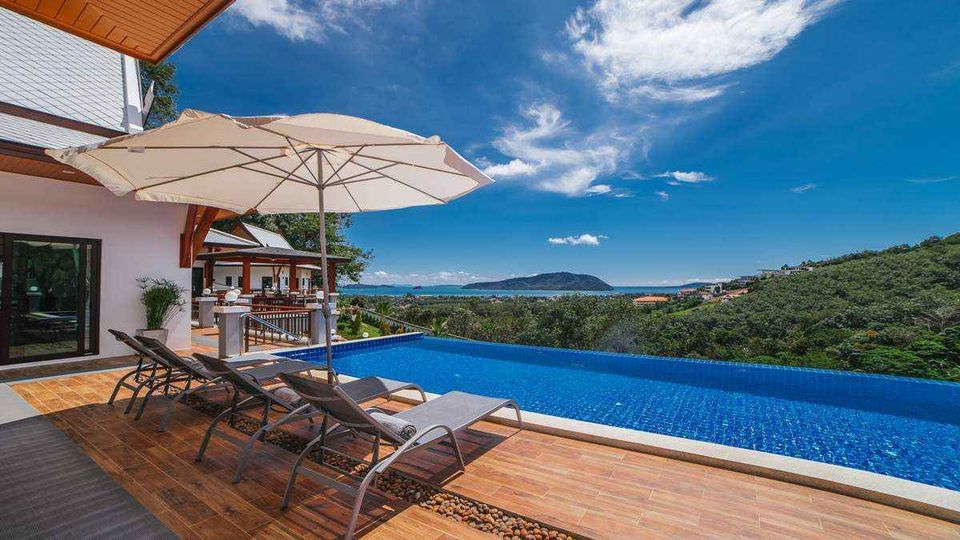Do I need a lawyer to buy a condo in Thailand?

Purchasing real estate in Thailand, be it a house or a condominium, requires the services of a reputable law firm. Once you have decided what real estate you are going to buy, always consult an attorney before signing any documents.
Is it easy to buy a condo in Thailand? The process of buying a condominium in Thailand is quite simple and only a few requirements must be met: The property purchased must be part of the 49% of the project area that could be owned by foreigners. This can be easily verified at the developer’s office directly with the legal officer.
Is it worth buying a condo in Thailand?
Under the right circumstances, buying a condo in Thailand can be a rewarding purchase and a good investment. If you are a foreigner interested in buying a condominium in Thailand, there are several things you need to consider. Thai law only allows foreigners to purchase condominiums under certain circumstances.
How much does it cost to buy a condo in Thailand?
| Level | Price per m² |
|---|---|
| Middle range | 70,000 baht – 89,999 baht |
| Medium-high range | 90,000 baht – 119,999 baht |
| High-end | 120,000 baht – 199,999 baht |
| Luxury | 200,000 baht – 299,999 baht |
Can foreigner own a condo in Thailand?
There are no nationality restrictions and all foreigners who can enter Thailand legally (no visa class requirements) can purchase and own a condominium unit within the foreign ownership quota of the condominium, but each foreigner must personally qualify for the property under section 19 of the Condominium Law.
Can a foreigner buy a townhouse in Thailand?

It is a commonly unknown fact that although a foreigner cannot own land in Thailand, they can own the house or structure built there. One only has to apply for a building permit to build the house in his name.
Can a foreigner own a villa in Thailand? Given the restrictions on land ownership, foreigners cannot own a villa directly, but must purchase a lease. Generally, this process is straightforward and you should expect a 30-year lease offer on any villa or house, which is the maximum length for any lease in Thailand.
Can a foreigner buy an apartment in Thailand?
Foreigners cannot buy land in Thailand, but you can buy apartments and condominiums as a non-citizen. However, foreigners cannot represent more than 40% of the total unit owners of the apartment block or condominium. Interestingly, you can buy the entire building as a foreigner, but not the land it’s built on.
Can foreigners own real estate in Thailand?
Answer: Under Thai law, foreigners cannot own land directly in their name. However, they can buy condominiums outright (Freehold) or purchase a landed property and lease the land (usually for 30 years, with an option to extend) on which the property sits.
Can foreigners own townhouses in Thailand?
The simple answer is “Yes”, it is legally possible! Property ownership by non-Thai citizens is possible with certain restrictions. Foreign investors and homebuyers may hold Title Deeds for Condominiums (Condos); however, they may not directly own land or real estate (ie villas, townhouses, and commercial houses).
How much money can I carry out of Thailand?

Any person who brings or takes a total amount of foreign currency greater than USD 20,000 or its equivalent to or from Thailand must declare such amount of foreign currency to a customs officer.
What needs to be declared at Thai customs? Thailand Customs allows visitors to enter Thailand with personal effects, the value of which does not exceed 80,000 baht, without paying import duties as long as: 1) the items are specifically for personal or professional use; 2) the quantity of goods is reasonable; and 3) the items are not subject to restriction.
How do I take money out of Thailand?
Withdrawing cash in Thailand In Thailand, you can withdraw money from ATMs with both your debit card and your credit card. ATMs are everywhere: at the airport, banks, department stores or supermarkets. On small local islands where there are no ATMs, you can often withdraw money at larger resorts.
Is Thai baht a restricted currency?
There are no restrictions on the amount of Thai currency that can be brought into the country. There is no restriction on the importation of foreign currency such as investment funds, offshore loans, etc.
What happens if you step on money in Thailand?
Banknotes and coins contain an image of the king and stepping on it would offend his dignity, as Thais believe that the feet are the dirtiest body parts. The law falls under ‘Lèse majesté’, or ‘crimes violating majesty’, punishable by up to 15 years in prison.
How long can you stay in Thailand if you own property?

However, after the successful purchase of a unit, foreigners are faced with a more pertinent problem to address: their stay in Thailand is normally limited to a period of 30, 60 or 90 days, the periods generally granted under a foreign visa for tourist; after which, they must leave the country.
How long can foreigners live in Thailand? When you move to Thailand, you will need to obtain a visa, a requirement of the Thai Immigration Law. Most people who move to Thailand do so on a tourist visa (valid for 60 days) or a non-immigrant visa that is initially valid for 90 days and then needs to be extended through Thai Immigration.
How can I live in Thailand permanently?
The Permanent Residence Permit allows you to stay in Thailand permanently without the need for a Visa. Furthermore, it is another step on the way to acquiring citizenship and a Thai passport. This is an opportunity that the Thai government offers to only 100 people of each nationality each year.
Can I live in Thailand if I buy a condo?
Buying a condominium is generally the only way for foreigners to purchase real estate in Thailand directly. Other options include negotiating a long-term lease (up to 30 years) or buying real estate using a Thai shell corporation, a practice that, while common, is technically illegal.
Can you live in Thailand if you own property?
In a nutshell, Thai law prohibits foreigners from owning land in their name, although there is an exception theoretically, but it remains to be seen in practice. However, there are alternatives available to foreigners for the successful acquisition of land.
Is there property tax in Thailand?

It should be noted that there is no general annual property tax in Thailand, but if individual owners rent or put their property for commercial use, the housing and rental tax is levied at a rate of 12.5% per annum. However, the absence of general property taxes imposed by the Thai government is good news for many.
Can a foreigner buy a condo in Thailand? There are no nationality restrictions and all foreigners who can enter Thailand legally (no visa class requirements) can purchase and own a condominium unit within the foreign ownership quota of the condominium, but each foreigner must personally qualify for the property under section 19 of the Condominium Law.
Is buying a condo in Thailand a good investment?
Under the right circumstances, buying a condo in Thailand can be a rewarding purchase and a good investment. If you are a foreigner interested in buying a condominium in Thailand, there are several things you need to consider. Thai law only allows foreigners to purchase condominiums under certain circumstances.
Is housing in Thailand cheap?
The cost of renting an apartment in Thailand is about 16 percent of what it costs to rent an equivalent apartment in New York City. Thailand is the 65th most expensive place to live in the world.
Is it better to rent or buy in Thailand?
Do you dream of moving to Thailand? To their credit, but if this is your first time coming for an extended stay, renting is the easiest way to get used to the country. By renting a property, you will avoid many restrictive procedures that can sometimes be lengthy.








